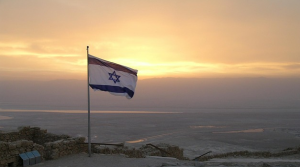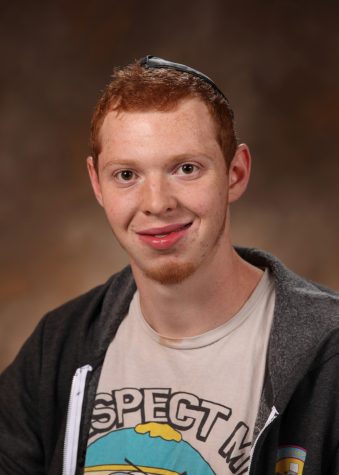Summer Programs in Israel Bring New Understanding

September 18, 2015
To many students, a trip to Israel largely consists of squeezing through markets packed as tightly as falafel, enough tear-shed to dilute the Dead Sea, and family quarrels so intense they redefine the term “Six-Day War.”
Some students, however, visit Israel through programs such as BBYO or Nesiya, transforming the trip from a mere family vacation into a more intense, even enlightening experience.
Junior Joseph Gelula is one such student.
Gelula, a member of international zionist youth movement called Habonim Dror, spent five weeks in Israel this summer with several dozen other teens, courtesy of Mechaneh Bonim B’Israel (MBI), a summer program run by the movement.
Gelula was introduced to Habonim Dror through Camp Moshava, one of the movement’s seven summer camps in North America. The camps, modeled after Kibbutzim, educate campers about issues of social justice such as Palestinian-Israeli relations and more universal, secular matters such as gender roles and white privilege.
Though MBI is on its face an educational program meant to explore Israeli culture, Gelula said it also is very centered around establishing a personal connection with the country.
“It was a very educational and politically-minded trip,” Gelula said, “But it was also a very life-changing experience.”
The program had all the earmarks of the classic summer Israeli trip— a visit to the Western Wall, hiking up Masada in the Negev, sailing rafts along the Kinneret—but these were not the things that left the biggest impacts on Gelula.
Rather, it was the discussions he and the other teens on MBI had about the Palestinian-Israeli conflict.
He came away from the trip with a fresh perspective of the country and the complicated political climate that surrounds it—primarily concerning who the “Promised Land” is promised to.
Gelula, having previously held what he described as a “black and white” view of the conflict, found himself reevaluating some of his long-lived ideas during his experience. He said that he realized he had become “more compassionate and understanding towards… everybody in the conflict” as a result of the trip.
Though amazed by cities like Jaffa and Tsefat, Gelula lamented that a country “that could be an example to the world” is so hampered and disfigured by internal and external conflicts, which he refers to as “growing pains.”
One such “growing pain” is the conflict between religious and secular beliefs in Israeli society, and the lack of co-existence between the two.
“Israel is a place that has so much beauty and amazingness to offer the world, but is struggling to do that,” Gelula said.
Still, despite this realization, or perhaps because of it, Israel looms larger in Gelula’s thoughts than ever before.
“If I hadn’t gone, I would have still seen Israel as this far off place that has a lot to do with my ideology,” Gelula said. “Now it’s a place that I see has this amazing personality … and now, having seen that and understood that, I have a lot more of a loving connection to Israel than I did before.”







